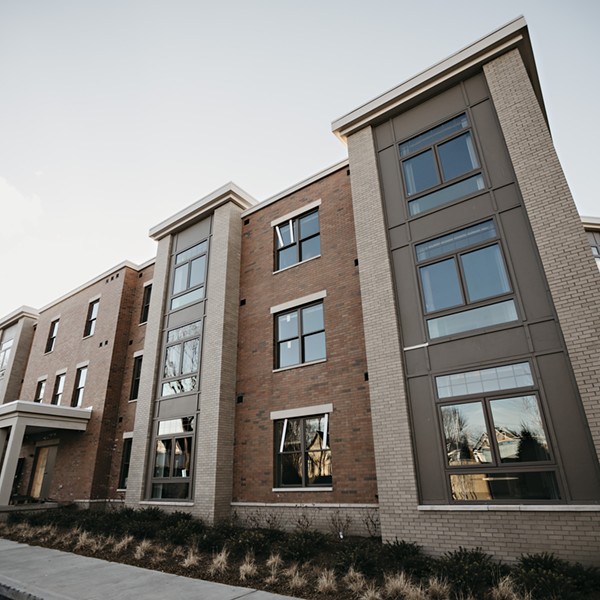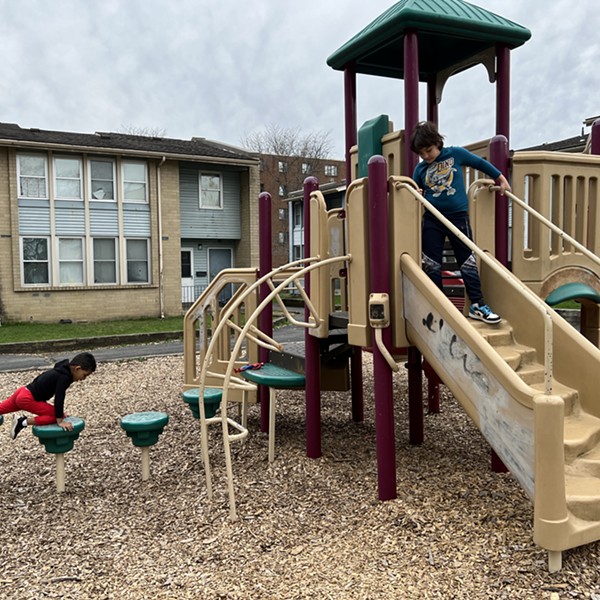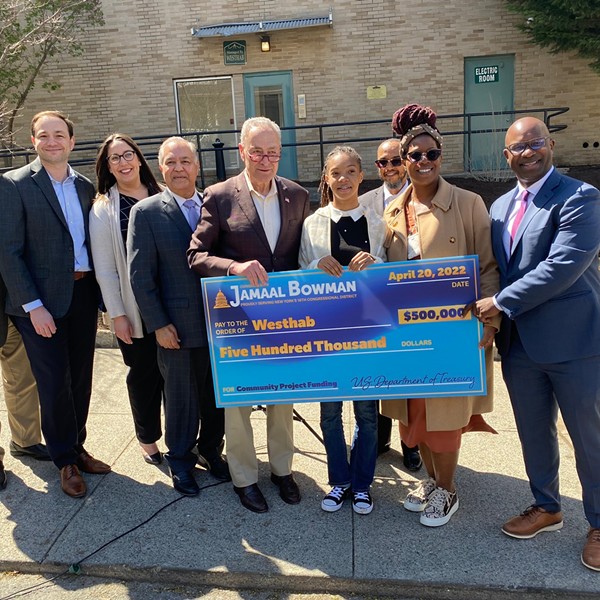Like so many others who now live in Kingston, I relocated from New York City. There are two true things that can be said about me: I am a part of the gentrification of this city, and I am also deeply committed to fighting for housing justice here. These two things not only can coexist, but for the sake of the future of this community, they must coexist.
Right now, Kingston is at a critical crossroads. The combination of COVID-19, the exodus from New York City, and the housing shortage in this area have combined to accelerate a housing crisis that had already reached a tipping point. The prices of rent and homes have skyrocketed in the past year. Meanwhile, 57 percent of Kingston households are living below the federal poverty level or earning less than the basic cost of living in New York State.
While city officials often pay lip service to the importance of affordable housing, the distance between their words and actions is vast. As a growing number of Kingston residents are being forced out of their homes, luxury buildings like the Kingstonian are granted tax breaks to the tune of $26.2 million.
In May, Mayor Steve Noble participated in a ribbon-cutting ceremony at a boutique hotel on the site of the old Hutton Brickyards, where tiny home cabins go for $645 a night. As that hotel was being built, a fully funded proposal to erect tiny homes in Midtown Kingston for those in need of emergency housing was stalled for months. City officials continually raised obstacles to the project—at one point they claimed that Kingston didn’t have zoning for tiny homes.
In short: right now, the focus is on development to attract people who don’t live here, while too often turning a blind eye to those who do.
That prospect should make allies of so many of us, lifelong and newer residents alike. Yet, too often, gentrification is discussed in reductive “us vs. them” terms, leaving little room for the complex interplay of privilege and struggle that characterize the lives of many full-time residents who relocated to the area. I am not only a part of the gentrification of this city; I am also negatively impacted by the gentrification of this city.
***
My story will be familiar to anyone who lives in the Hudson Valley: As a writer and freelancer, my income made it a perpetual challenge to survive in New York City. I wanted to live somewhere I could own a home. Not just that: I wanted to live somewhere diverse enough that I wouldn’t be the brownest woman at the library or local coffee shop. I wanted to be in community with fellow artists and writers. And, most importantly, I wanted to live in a place where a neighbor’s camaraderie didn’t end at the occasional “hello,” but extended to taking action to meet our collective needs as a community. A number of visits and conversations with folks who lived in Kingston convinced me that this was a community where I might feel at home.
In 2019, I found an affordable short-term rental in town and set to work trying to qualify for a mortgage. I met with folks at three different local banks. After showing them my tax returns and telling them I was a freelancer, they all kindly showed me the door. Eventually, I found my way to someone who didn’t flinch at my occupation.
Still, it took months of financial wrangling and jumping through hoops before I received the news that I had finally officially qualified for a modest mortgage. By that point, it seemed like a cosmic joke. It was late April 2020, and COVID-19 had effectively shut down the real estate industry, though it would be only a few weeks before it was back in action—or, more accurately, in an outright frenzy, with home prices reaching an all-time high.
Here is how I was finally able to buy a home: I wrote a letter to a family who was selling. They had raised their children in Kingston and were retiring after working for the local high school. I told them I was certain they could get more for their home than I was able to offer. But I also told them why I wanted to live in their home and in Kingston: my appreciation for the community, my commitment to doing what I could to support my neighbors.
My real estate agent told me he couldn’t submit the letter. In the interest of avoiding any possible violation of the Fair Housing Act—which is designed to protect homebuyers from discrimination based on race, national origin, disability, etc.—the agency refuses to submit any personal letters. While I appreciate the intention of those protective measures, the reality is that my highly Google-able Indian name—which would appear on the submitted offer—supplied a pretty straightforward opportunity to make any biased judgments anyone would care to.
I told my agent that the letter I had written didn’t include any information that would violate the Fair Housing Act. Still, he said no. I wrestled with what to do. Even with the letter, having my offer accepted was a long shot. Without it, I was certain it wouldn’t even be considered. I left the note in the mailbox of the seller’s home, feeling vaguely like a criminal for letting the owners know what kind of person was interested in buying the home they had raised their family in.
I want to tell you that learning the house was mine—that the owners had turned down higher offers so that I could live there—was a moment of pure joy. It was not. I was grateful but exhausted. Even angry. If I hadn’t gone against my agent’s advice, I would not have a home. The entire qualification and house-hunting process had been demoralizing enough—including a smattering of sexist and racist slights along the way—that all I could think was: It should never be this difficult for anyone to have a home of their own. And here I was, one of the lucky ones, able to buy a home in a city where, in the middle of a deadly pandemic, rising rents, and increasing displacement, people were sleeping in their cars or in tents in below-freezing temperatures.
By October, I had moved into my new house. I had also joined the Ulster County Coalition for Housing Justice, which formed as an offshoot of the Kingston Emergency Food Collaborative. Within that group of educators, activists, and citizens, I have learned the true depth of the crisis we’re in. But it’s also where I’ve come to recognize the many concrete opportunities we have to ensure this city grows and evolves while supporting its greatest resource—the residents who made this city what it is long before I arrived.
UCCHJ has held education events to ensure tenants understand their rights. We’ve collected hundreds of signatures for a petition that, among other things, calls for the city to update antiquated zoning laws in collaboration with community stakeholders. We’re also calling for a redefinition of affordable housing—one that isn’t pegged to the problematic measure of area median income (AMI). In Ulster County, household AMI is $83,300, but the average hourly wage in the county is $13.33. At this rate, a single person working 40 hours per week would make $25,594 per year—before taxes.
If we’re going to build actual affordable housing, we need to center those most in need rather than using a number that is obscenely skewed by a handful of wealthy residents and second homeowners.
***
Over the course of my two years in Kingston, I’ve had many occasions to appreciate what a small city it is. This has never been more true than the moment I came across a rental listing for a small house on Pine Street. I recognized the house because it was the first one I had looked at when I started my house hunt. It was small but relatively affordable. Now, that house was owned by someone who was renting it out for $2,600 per month, utilities not included.
When I saw the name of the person listing the home, I felt a bolt of shock and confusion: it was the author of an op-ed I had read in The New York Times last summer, in the middle of the pandemic. Like me, the author was a New York City transplant to Kingston. In the op-ed, they had acknowledged their own privilege, but expressed concern that newer arrivals to Kingston would negatively alter the community. They worried that moneyed city folk buying up Kingston real estate would increase rental prices and lead to an increase in evictions. That op-ed was published a week after they had closed on the house on Pine Street.
I relate this story not because I’m interested in exposing a single person’s hypocrisy. Rather, I think it handily illustrates the conflicting forces at play for many newer arrivals to Kingston who seek to be a supportive part of a community they are also negatively impacting. I appreciated that the author chose to publicly acknowledge their privilege and complicity with gentrification in the op-ed. It’s not an easy thing to do. We’re living through a time of real public reckoning in which many of us are re-examining our roles in—and impact on—our communities. But without discussing action or solutions, public lamentations about gentrification and privilege remain stalled in the realm of handwringing.
Too often, we treat the act of acknowledgment as the destination, when it’s only the first stop on a much longer—and more fulfilling—journey.
The way so many of us—renters, homeowners, politicians, journalists—discuss gentrification is as though it’s an inescapable force of nature. When we do that, we bolster this belief that it is completely outside of our control. It is not. I understand the seduction of believing otherwise: for those of us who feel complicity or guilt about our own roles and the unintentional negative impact we might be having, it can be a relief to surrender to this notion. A relief to feel that the building of boutique tiny home hotels and luxury apartment buildings has nothing to do with us. That it is inevitable—along with the displacement of longtime Kingston residents.
It’s easier to shrug and rhetorically say, What can you do than it is to earnestly ask, What can I do?
But the answer is: So damn much. Kingston is rich in organizations already doing the work of protecting and advocating for this community we’d all like to call home. From Kingston Mutual Aid to Rise Up Kingston, the Ulster Immigrant Defense Network to the REAL Kingston Tenants Union. And, of course, the Ulster County Coalition for Housing Justice. Our job as newer arrivals is to follow their leadership and get to work.
The River is a nonpartisan news organization, and the opinions of columnists and editorial writers do not necessarily reflect the opinions of the newsroom.

















